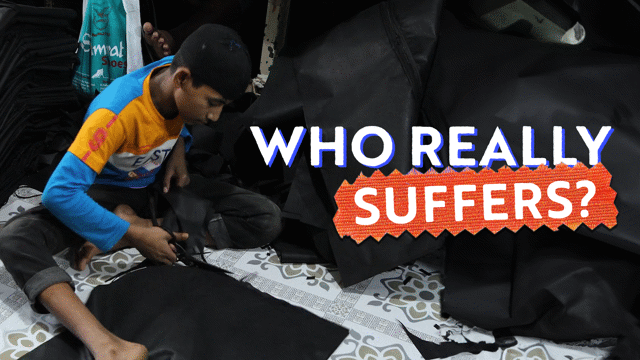The Hidden Costs of Fast Fashion: Unveiling the Damage
In our modern world, fashion moves at the speed of light. Trends come and go in the blink of an eye, thanks to the rise of fast fashion. But beneath the glitz and glamour lies a darker reality—a reality where the pursuit of style comes at a significant cost to our environment, communities, and even human rights.
Fast fashion, characterized by its rapid production of inexpensive clothing inspired by runway trends, has transformed the way we consume fashion. However, the convenience and affordability of fast fashion conceal a host of damaging consequences.
Environmental Exploitation
One of the most pressing concerns surrounding fast fashion is its environmental impact. From the extraction of raw materials to the disposal of garments, every stage of the fast fashion supply chain exacts a toll on our planet.
The production of cheap, disposable clothing relies heavily on the intensive use of natural resources such as water, land, and energy. Cotton cultivation, for instance, often involves the excessive use of pesticides and water, contributing to soil degradation and water pollution. Additionally, the manufacturing process emits harmful chemicals and greenhouse gases, exacerbating climate change and air pollution.
Moreover, the rapid turnover of fashion trends encourages a culture of disposability, where garments are worn briefly before being discarded. As a result, landfills overflow with textile waste, which takes centuries to decompose, further polluting our environment and endangering wildlife.
Exploitation of Labor
Behind the glamorous façade of fast fashion lies a hidden reality of exploitation and injustice. In pursuit of lower production costs, many fast fashion brands outsource manufacturing to developing countries with lax labor regulations and low wages.
Workers in garment factories often endure abysmal working conditions, including long hours, unsafe environments, and meager pay. Reports of child labor, forced labor, and wage theft are all too common in the fast fashion industry, highlighting the human cost of cheap clothing.
Furthermore, the relentless pressure to meet tight production deadlines leaves workers vulnerable to exploitation and abuse, with little recourse for seeking justice or improving their working conditions.
Cultural Homogenization
Fast fashion's relentless pursuit of the latest trends has also led to a loss of cultural diversity and identity. By mass-producing standardized designs influenced by Western fashion, fast fashion brands often overlook the rich sartorial traditions and craftsmanship of indigenous cultures around the world.
This cultural homogenization not only erases unique cultural expressions but also perpetuates harmful stereotypes and reinforces Western-centric beauty standards, marginalizing diverse voices and perspectives in the global fashion industry.
The Path Forward
Addressing the damage caused by fast fashion requires a collective effort from consumers, businesses, and policymakers alike. As consumers, we have the power to drive change by making mindful choices about what we buy and how we consume fashion.
By prioritizing quality over quantity, supporting sustainable and ethical brands, and embracing timeless styles over fleeting trends, we can reduce our reliance on fast fashion and promote a more sustainable and equitable fashion industry.
Moreover, holding fast fashion brands accountable for their environmental and social impact through transparency and regulation is essential for fostering positive change. By advocating for fair labor practices, promoting eco-friendly production methods, and investing in circular fashion initiatives, we can create a fashion industry that respects both people and the planet.
In conclusion, the allure of fast fashion comes at a high price—one that we can no longer afford to ignore. As stewards of our planet and champions of social justice, it is incumbent upon us to challenge the status quo and demand a fashion industry that values sustainability, ethics, and inclusivity above all else. Only then can we truly redefine the meaning of style and fashion for generations to come.


